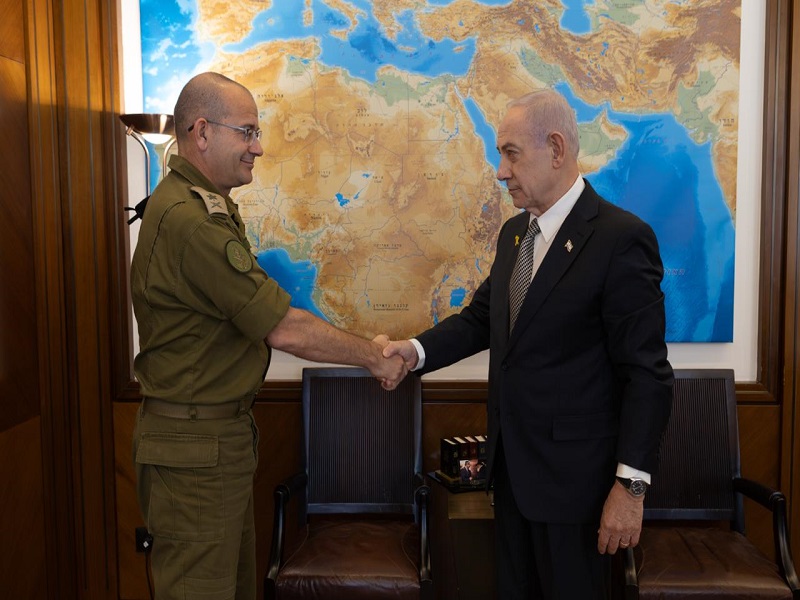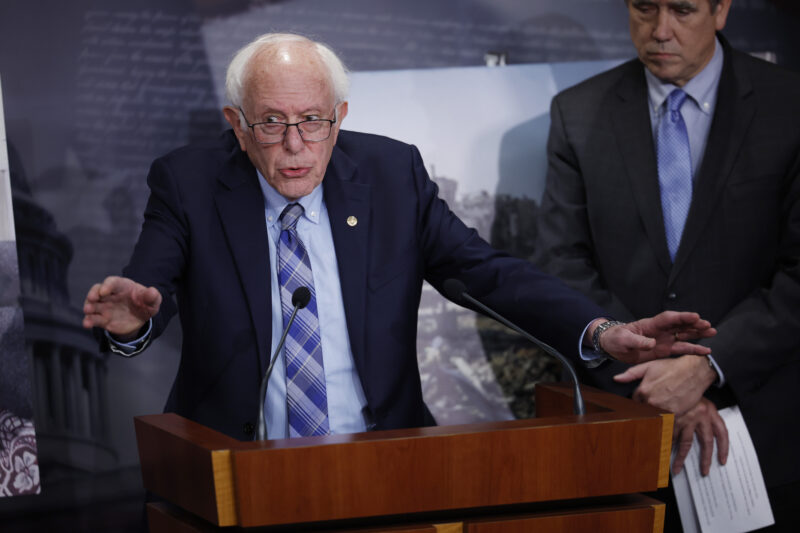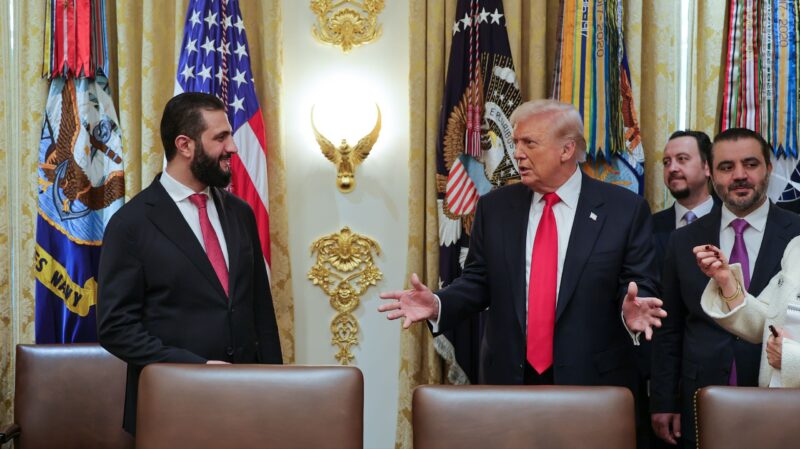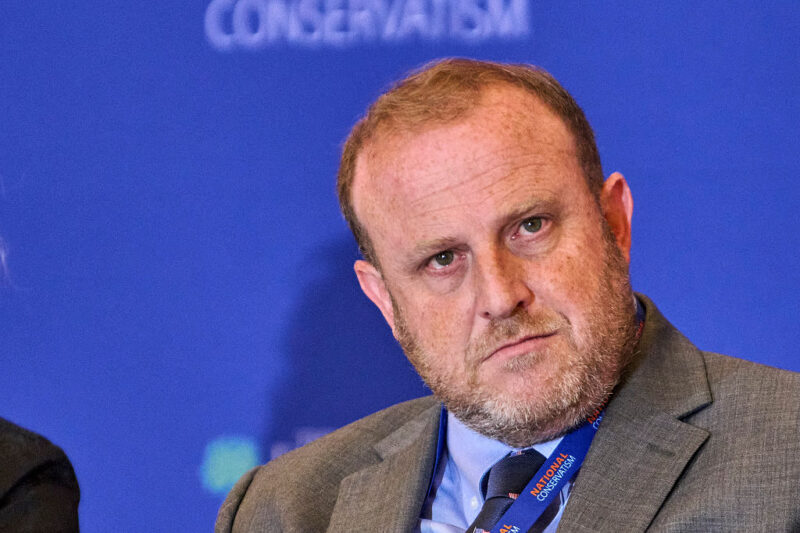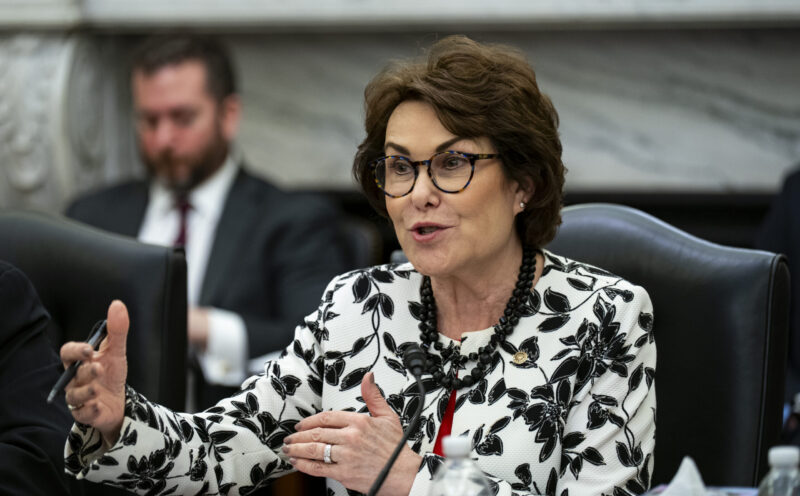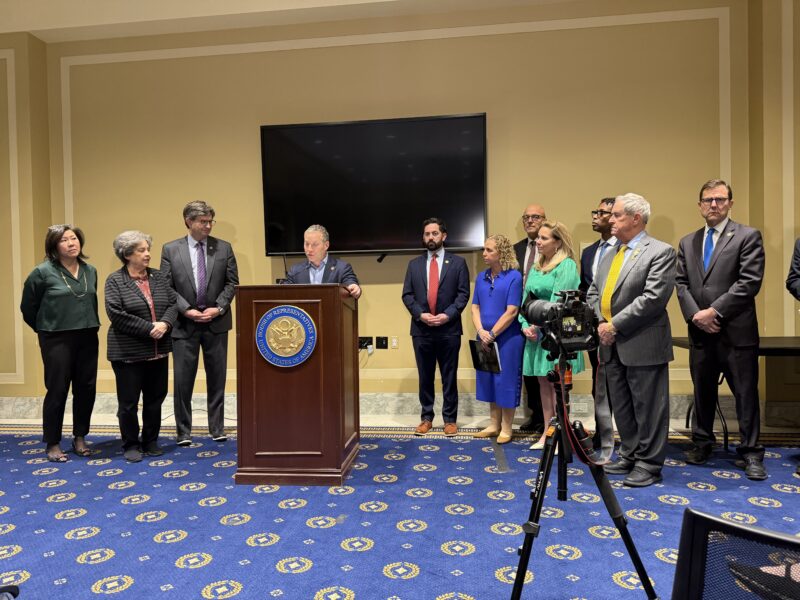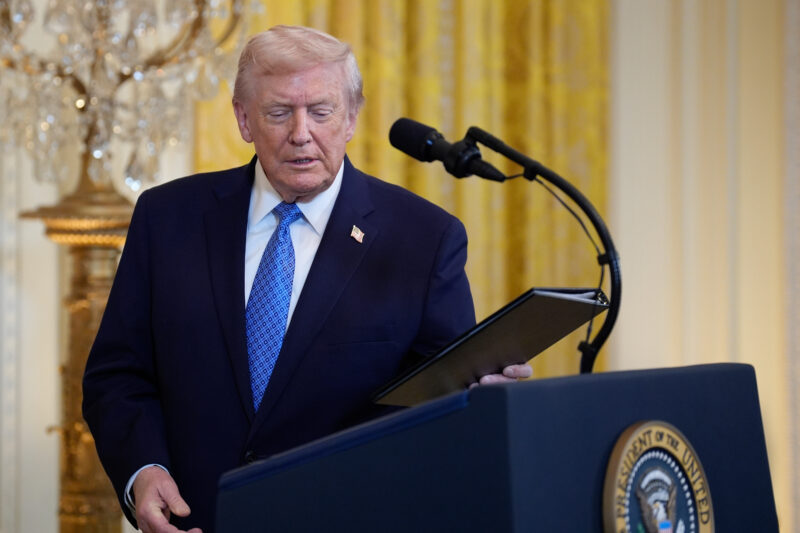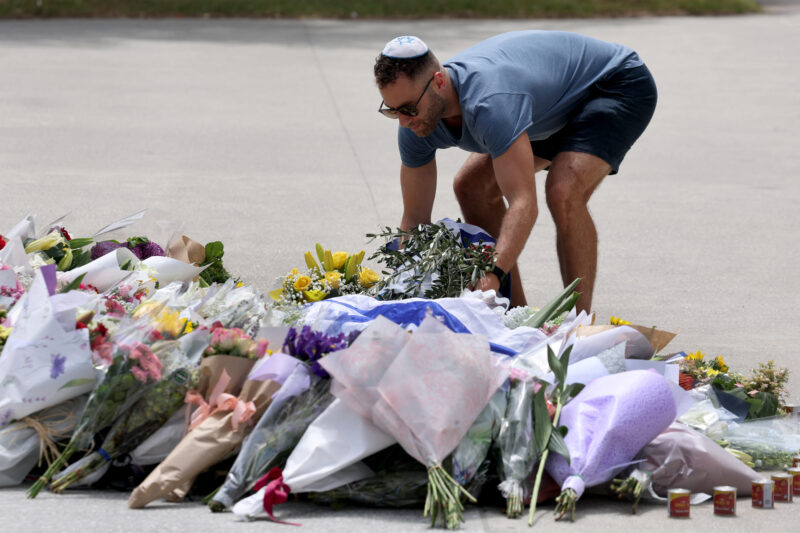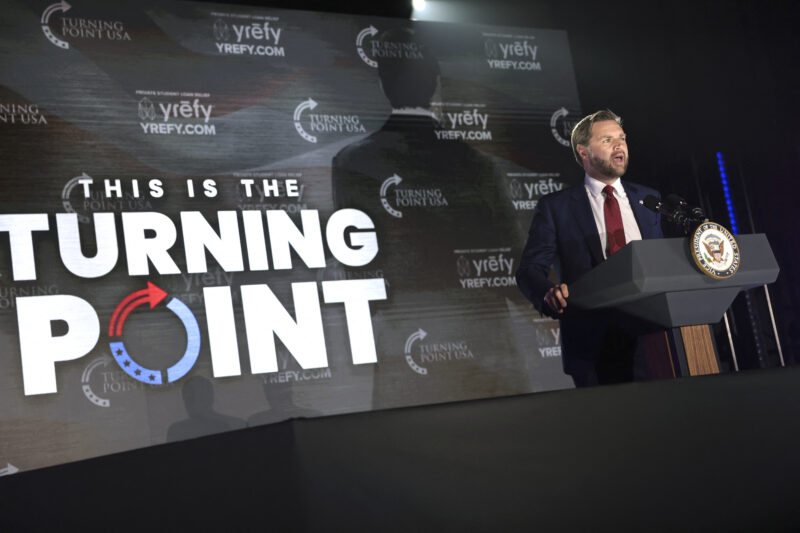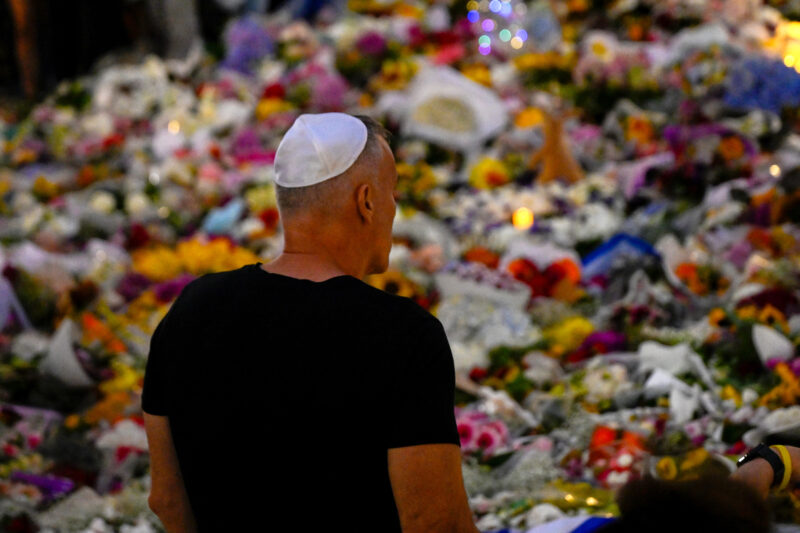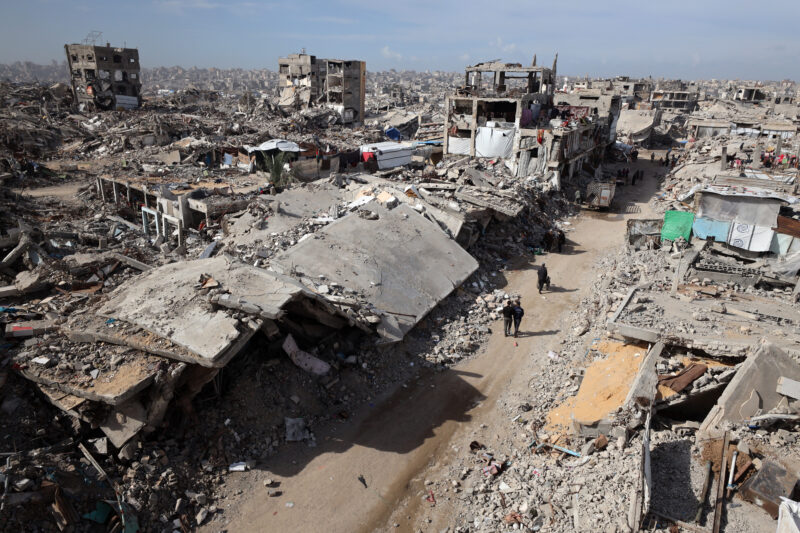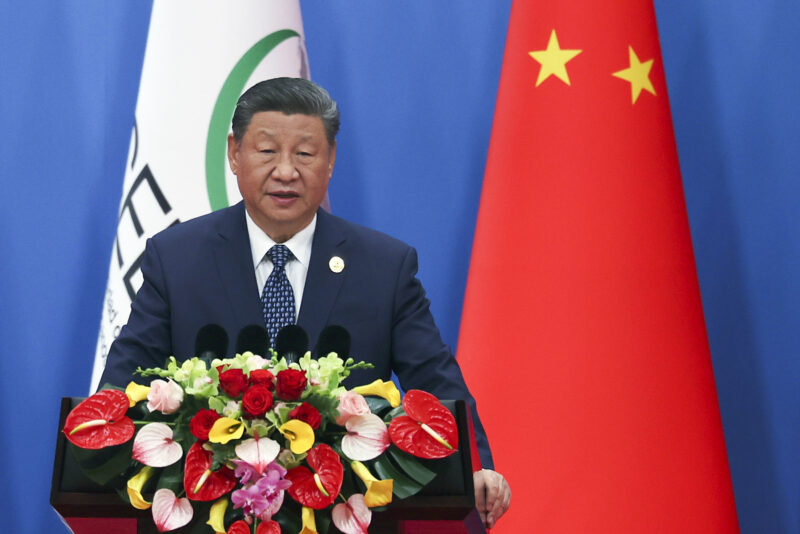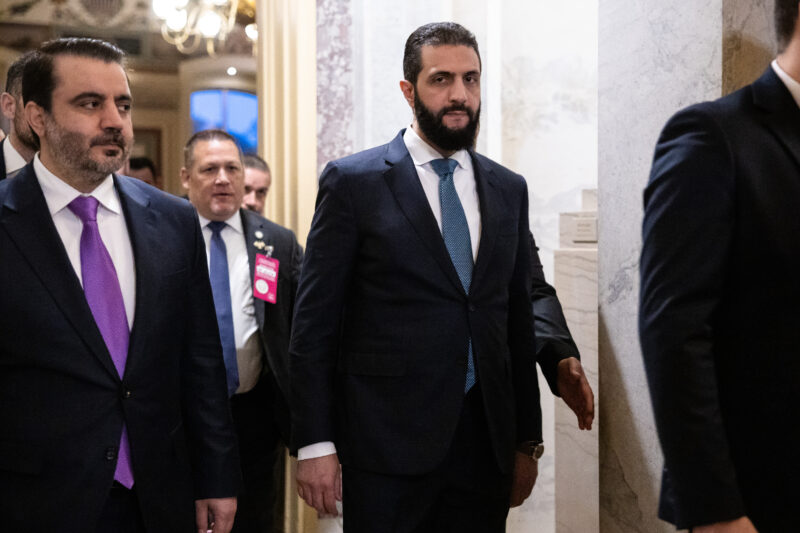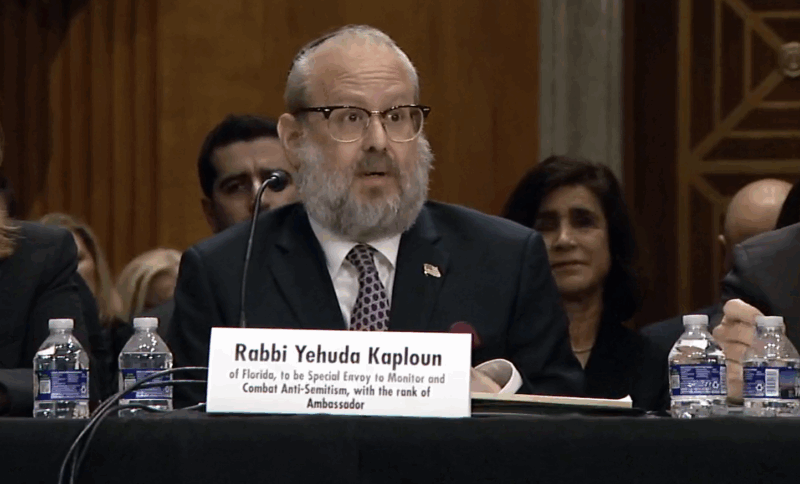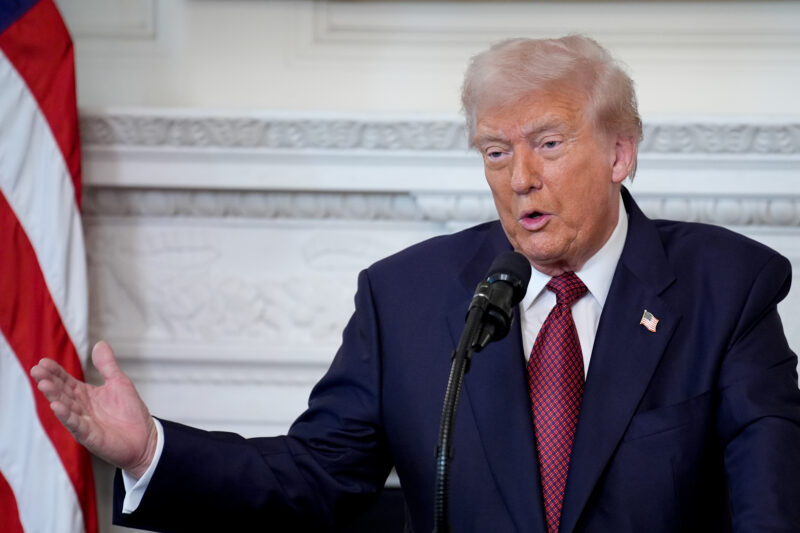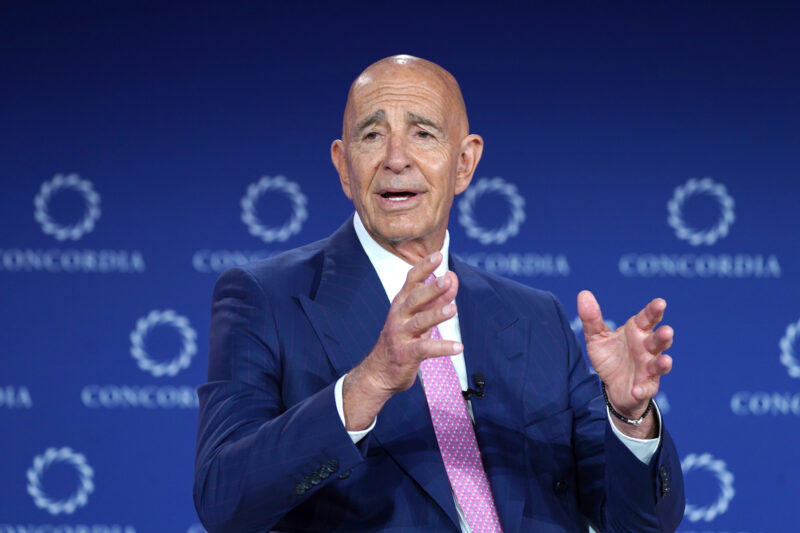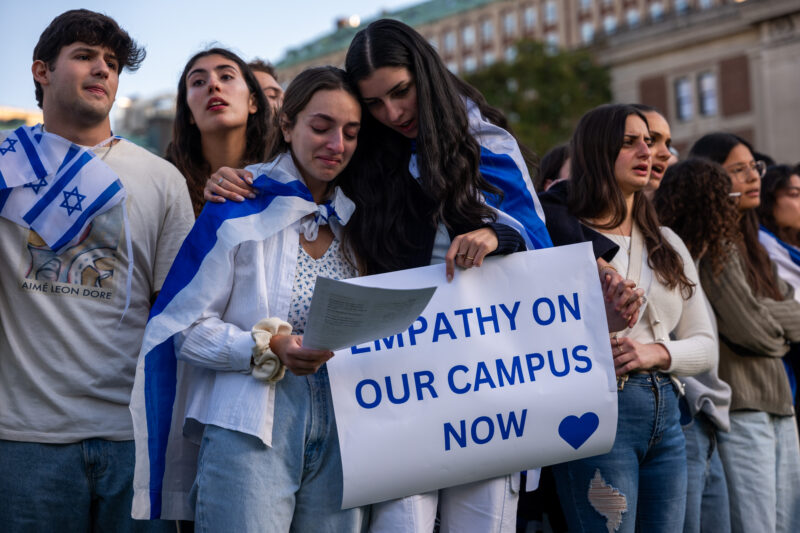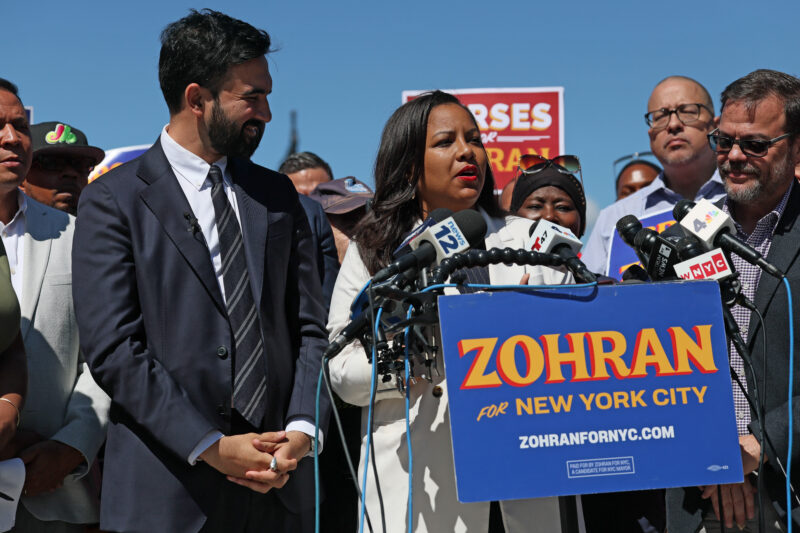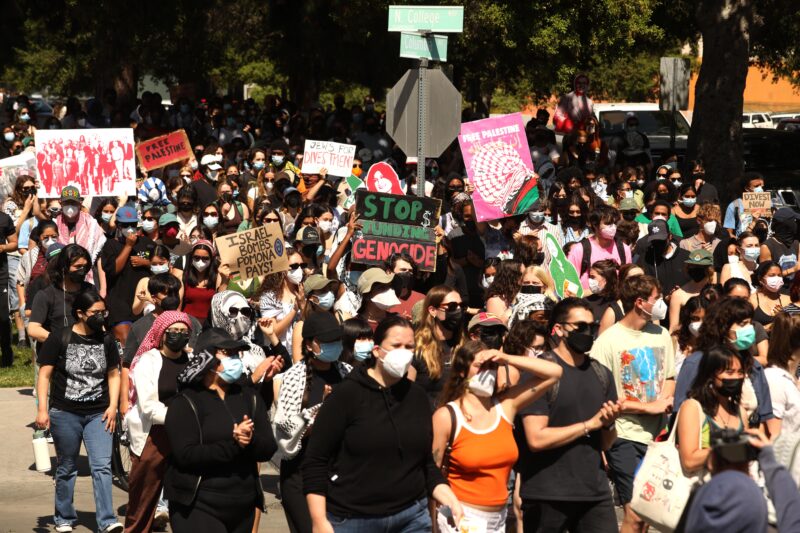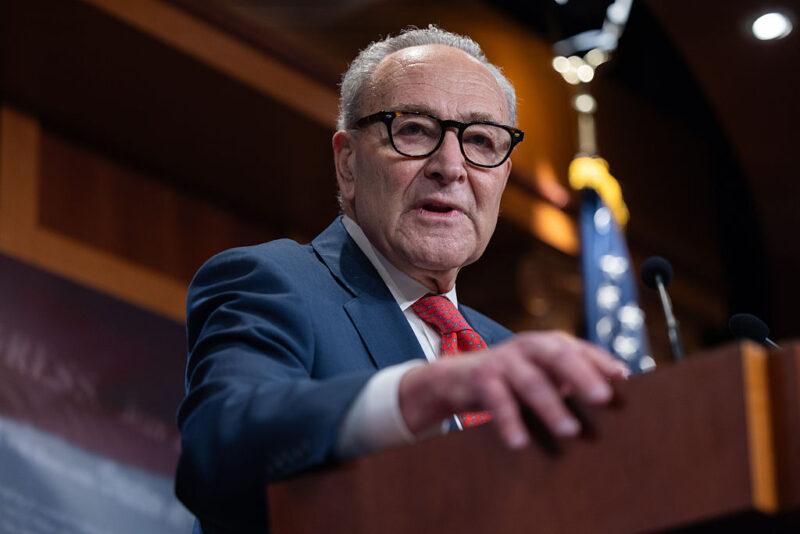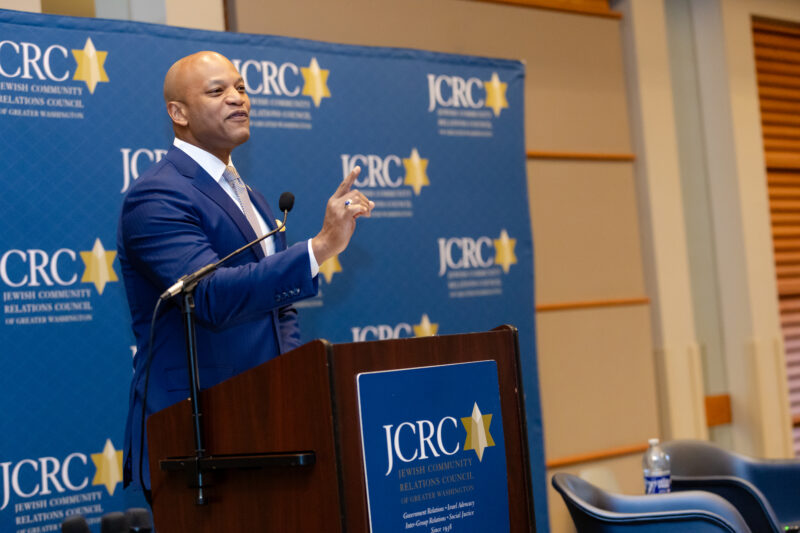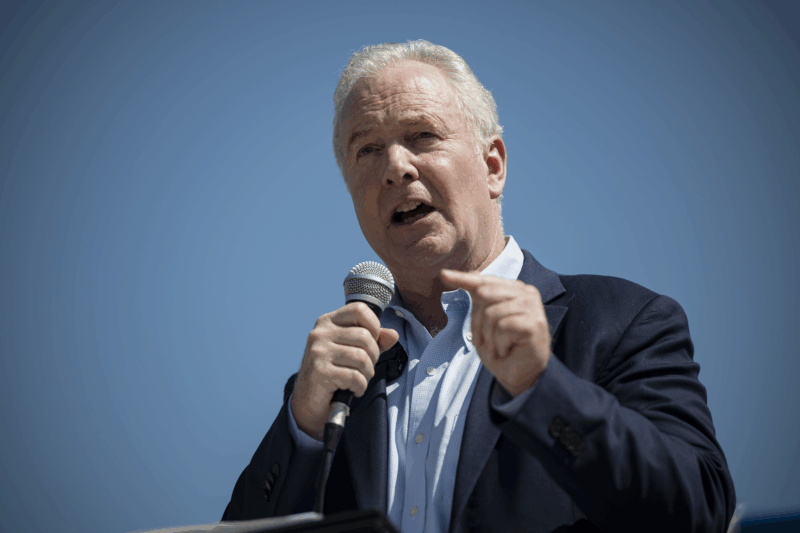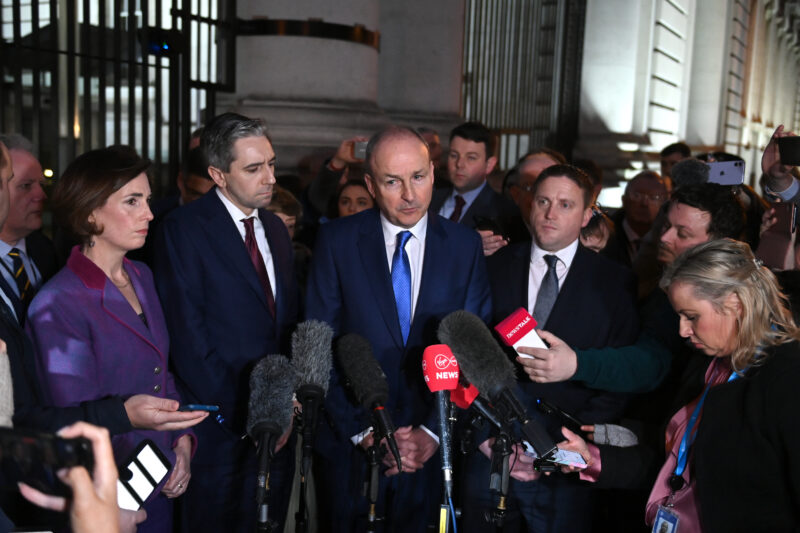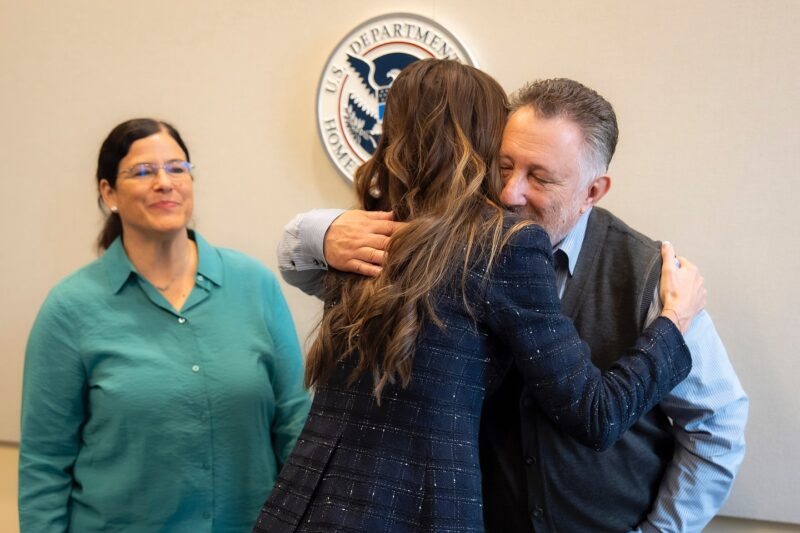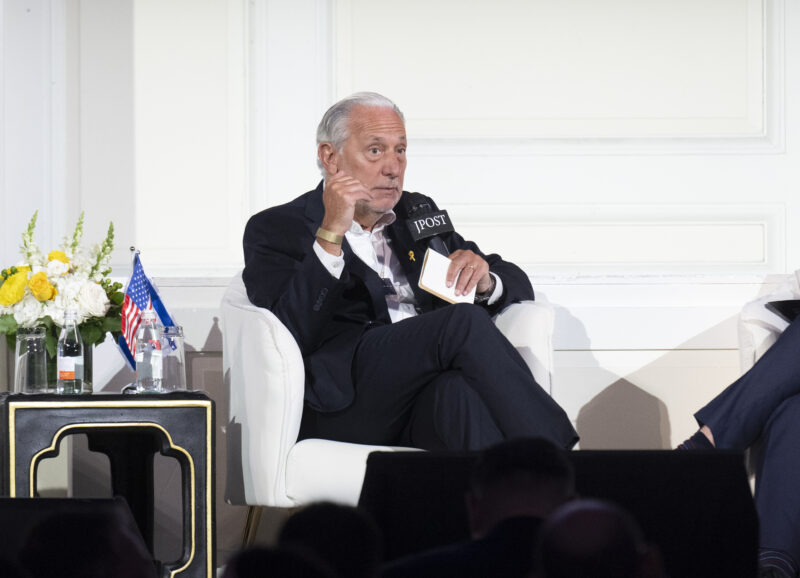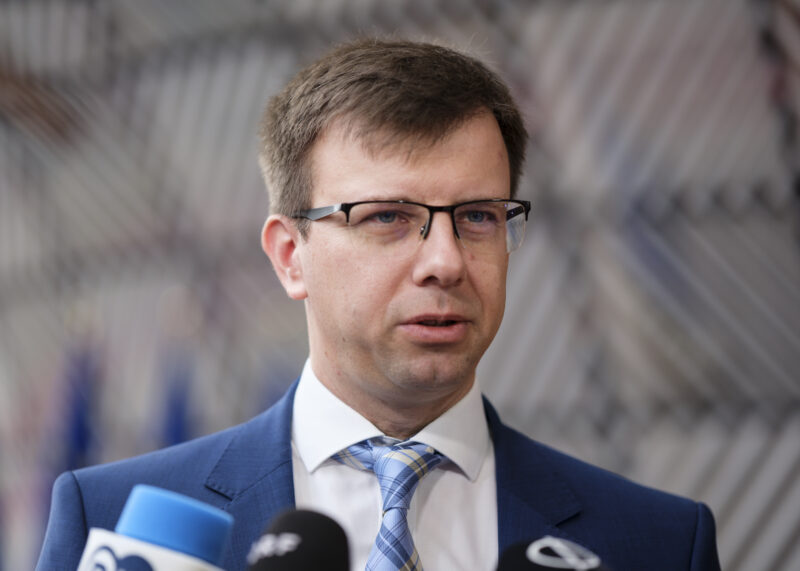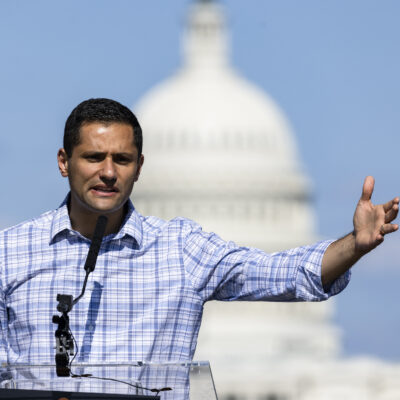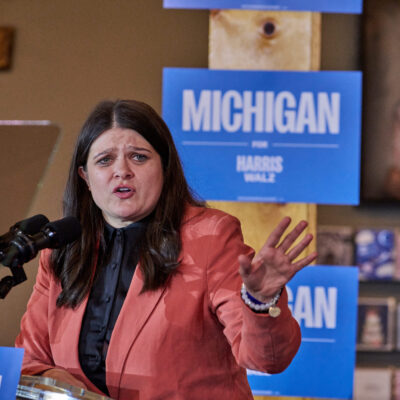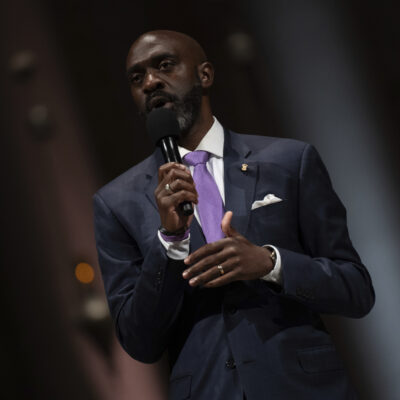Netanyahu, opposition discuss emergency unity government
The Israeli prime minister met with Gantz and Lapid separately to brief them on the situation, and offered each to join an emergency government

ABIR SULTAN/POOL/AFP via Getty Images
Israeli Prime Minister Benjamin Netanyahu attends the weekly cabinet meeting at his office in Jerusalem on September 27, 2023.
Israeli Opposition Leader Yair Lapid and National Unity Party leader Benny Gantz expressed willingness to set aside their differences with the ruling coalition and form a unity government with Prime Minister Benjamin Netanyahu, in the hours after the start of the deadliest attack on civilians in Israel’s history.
The efforts began with a joint message from all of the Zionist parties in the opposition on Saturday morning, as reports of Hamas’ terror attacks in Israel’s south began to spread.
In a joint statement, Lapid, Gantz, Israel Beytenu leader Avigdor Liberman and Labor leader Merav Michaeli said, “We are all united against terror and must strike it with a firm and determined hand…In days like these, there is no opposition and coalition in Israel. We will give full backing to security forces to respond forcefully against terror and its proxies.”
Gantz repeated that “there is no coalition and opposition” in a Hebrew-language video statement later that day.
By evening, Netanyahu met with Gantz and Lapid separately to brief them on the situation, and the prime minister offered each to join an emergency government, according to a statement from Netanyahu’s Likud party.
If there is an emergency government, it would have a precedent in the 1967 Six-Day War, which Likud cited in its statement to the press on the meetings between Netanyahu, Gantz and Lapid.
Netanyahu “offered both of them to enter a broad emergency government, in the same format in which opposition leader Menachem Begin, of blessed memory, joined the [Levi] Eshkol government on the eve of the Six-Day War.”
Gahal, a precursor to Likud, and David Ben-Gurion’s Rafi Party joined Eshkol’s coalition on June 1, 1967, days before the war, with Moshe Dayan of Rafi becoming defense minister and Begin and Yosef Sapir of Gahal becoming ministers without portfolio.
Gantz said he was “positively considering the possibility of entering an emergency government during wartime which will focus only on the security challenges, and in a way that will allow a partnership and significant influence on decision-making in relevant forums.”
Lapid tweeted soon after the meeting that he was “willing to put aside all disputes and establish a professional and limited emergency government that will manage the difficult, complex, and protracted campaign ahead of us.”
Netanyahu’s offer of “a broad emergency government, in the same format” as 1967, implies that he was inviting Lapid and Gantz to enter the coalition as is.
However, Lapid made clear that he would only join such a coalition if the Religious Zionist faction, whose leaders are Finance Minister Bezalel Smotrich and National Security Minister Itamar Ben-Gvir, is removed.
“I won’t discuss who is to blame or why we were surprised. This is not the time, this is not the place. We will stand united against our enemies,” Lapid said. “Netanyahu knows that in the extremist and dysfunctional makeup of the current Security Cabinet, it is impossible to manage a war. The State of Israel must be led by a professional, experienced, and responsible political leadership.”
A spokesman for Gantz said on Sunday afternoon that he is “considering the possibility of establishing an emergency government. We will not get into the conditions now.”
Opposition sources told Jewish Insider that both Lapid and Gantz are serious about their willingness to work with Netanyahu during wartime.
Gantz may be willing to do so regardless of the makeup of the coalition. For Lapid, sources told JI, the purpose of an emergency government would be defeated by working with Smotrich and Ben-Gvir, whom Lapid views as not understanding the severity of this war in comparison to past Gaza operations. If Netanyahu keeps the Religious Zionist faction in his coalition, Lapid is likely to support the government from the outside and can be an alternative with which Netanyahu can threaten Ben-Gvir and Smotrich.
As of Sunday afternoon, there were no further negotiations towards an emergency unity government.
One opposition source lamented that the current cabinet ministers are leaking details of meetings to show how tough they are, rather than treating the situation with the appropriate gravity.
Michael Shemesh, from Israel’s public broadcaster KAN, reported that in Saturday night’s cabinet meeting, Smotrich quoted a line from “The Good, the Bad, and the Ugly” frequently cited by Israeli politicians looking for tougher action: “If you have to shoot, shoot; don’t talk.”
“We must be cruel and not consider the captives too much,” Smotrich reportedly said.
Science and Technology Minister Ofir Akunis, a member of Likud, openly pondered “the question every citizen is asking: What happened to Israel’s intelligence?”




